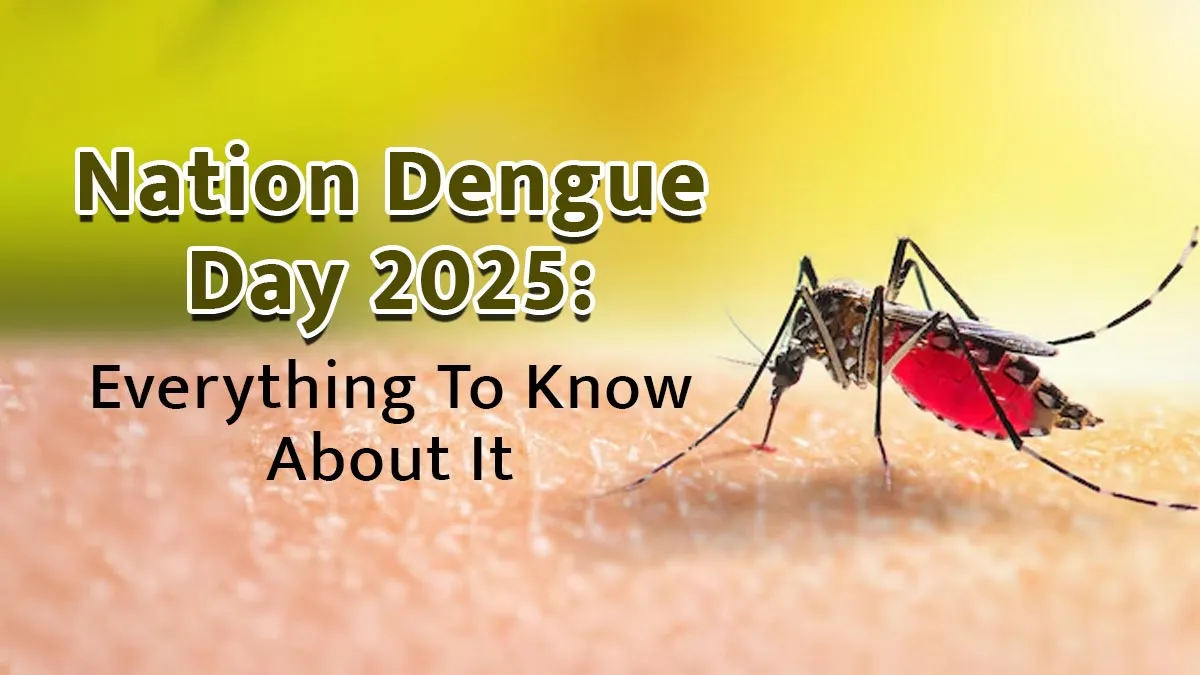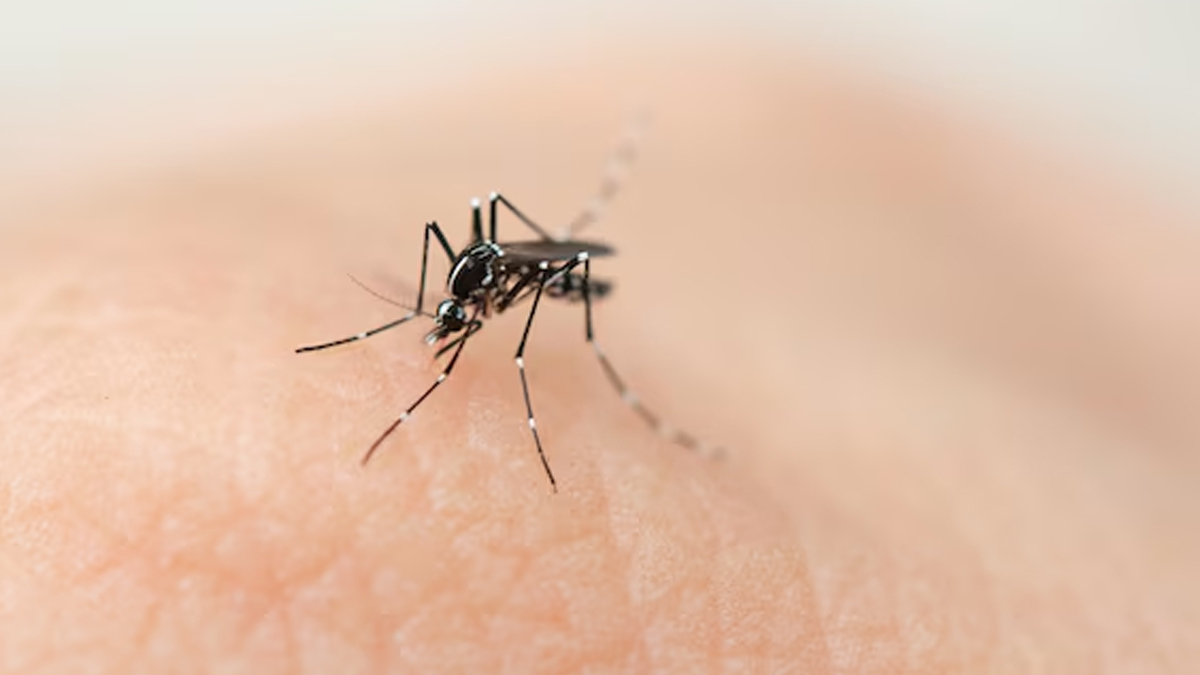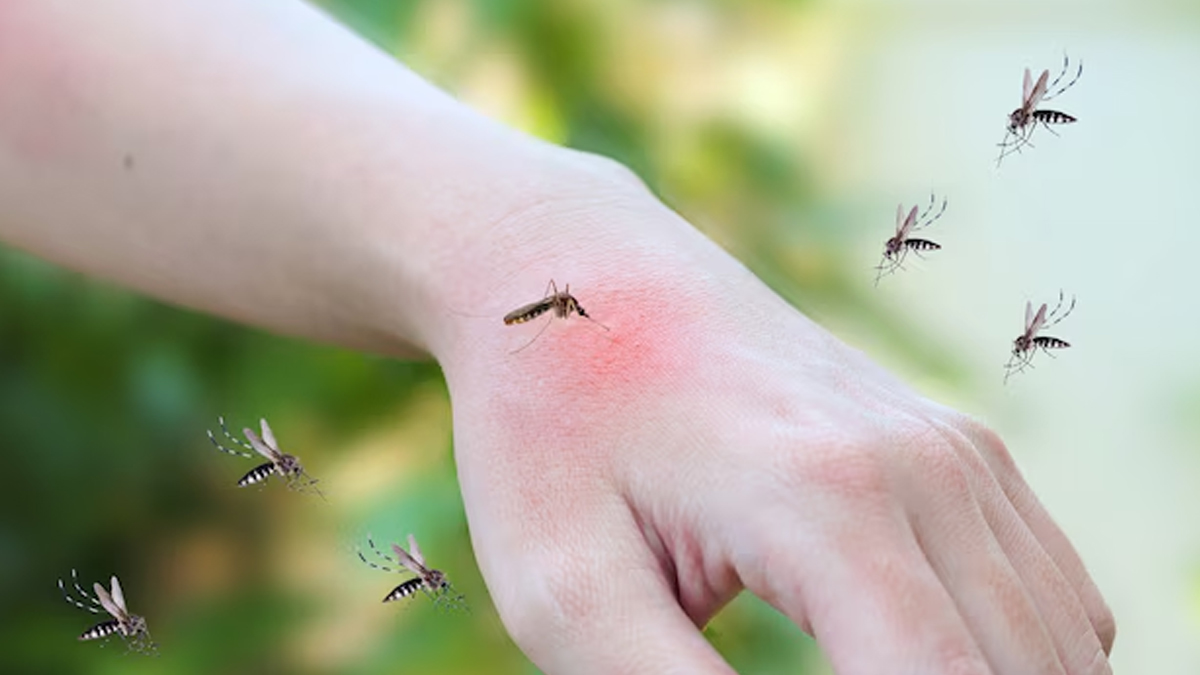
Mosquitoes may be small, but they can cause big problems for humans. One of the most dangerous diseases they spread is dengue. Dengue fever can lead to high fever, severe pain, and even life-threatening complications. Every year, as the monsoon season arrives, the risk of dengue rises. To fight this, India observes National Dengue Day on May 16. This day is dedicated to raising awareness about dengue, its prevention, and the importance of early detection and treatment. National Dengue Day 2025 is a timely reminder to stay alert and take action against this mosquito-borne threat.
Table of Content:-
What is Dengue?![national dengue day 1 - 2025-05-16T094155.936]()
Dengue is a viral infection spread by the bite of the Aedes mosquito, especially the Aedes aegypti type. Dr Devendra Kumar Singh, Senior Consultant and HOD, Respiratory Medicine, Sharda Care, Health City, Greater Noida, explains, “This disease is spread by the bite of the Aedes mosquito, especially the Aedes aegypti type. These mosquitoes are more active during the daytime. Dengue is caused by a virus.” Dengue often causes high fever, severe headache, joint and muscle pain, skin rashes, and sometimes mild bleeding. In severe cases, it can lead to internal bleeding, shock, and even death, especially in children, the elderly, and those with weak immune systems.
ALSO READ: Malaria vs. Dengue: Understanding the Differences and Protecting Yourself from Both
National Dengue Day 2025: Theme
National Dengue Day is observed every year on May 16 to spread awareness and promote preventive actions. Each year, there is a special theme to focus the campaign. The national dengue day theme 2025 is ‘Act Early, Prevent Dengue: Clean Surroundings, Healthy Living.’ This theme highlights the importance of early action, keeping our surroundings clean, and involving the whole community to stop the spread of dengue. The national dengue day theme encourages everyone to clear stagnant water, use mosquito repellents, and report symptoms early to healthcare providers.
History of National Dengue Day
National Dengue Day was started by the Ministry of Health and Family Welfare in 2010. The government introduced this day as dengue cases were rising during the pre-monsoon and monsoon seasons. The aim was to educate people before the outbreak season, which usually peaks from June to September. Over the years, this day has helped reduce the burden of dengue by involving health workers, schools, and community groups in spreading information and prevention tips.
Why is National Dengue Day Important?![dengue prevention 2 - 2025-05-16T094245.913]()
National Dengue Day 2025 is significant because dengue remains a major public health problem in India. According to the World Health Organisation (WHO), about 3.9 billion people worldwide are at risk of dengue, and the disease is now endemic in more than 100 countries. WHO highlights that dengue epidemics tend to peak during and after the rainy season due to increased mosquito breeding in stagnant water. The day is important to:
- Educate people about dengue symptoms and prevention.
- Promote early medical care to avoid complications.
- Encourage community action to remove mosquito breeding sites.
- Remind everyone to keep their homes and surroundings clean..
How to Prevent Dengue![dengue tips for prevention 3 - 2025-05-16T094200.307]()
According to the expert, “Since prevention is preferable to treatment, anyone exhibiting dengue symptoms ought to see a doctor immediately.” Simple steps can help protect you and your family:
- Remove stagnant water from buckets, flower pots, coolers, and tanks.
- Use mosquito nets and repellents.
- Wear long-sleeved clothes during the day.
- Keep windows and doors closed or use screens.
- Seek medical help if you have symptoms like high fever, headache, or rash.
ALSO READ: World Malaria Day 2025: Theme, History and Its Significance
Conclusion
National Dengue Day 2025 is a crucial reminder for everyone to stay alert and take proactive steps against dengue. The national dengue day theme 2025, “Act Early, Prevent Dengue: Clean Surroundings, Healthy Living,” encourages early action and community participation. By working together and staying informed, we can reduce the risk and impact of dengue in our communities.
Also watch this video
How we keep this article up to date:
We work with experts and keep a close eye on the latest in health and wellness. Whenever there is a new research or helpful information, we update our articles with accurate and useful advice.
Current Version


